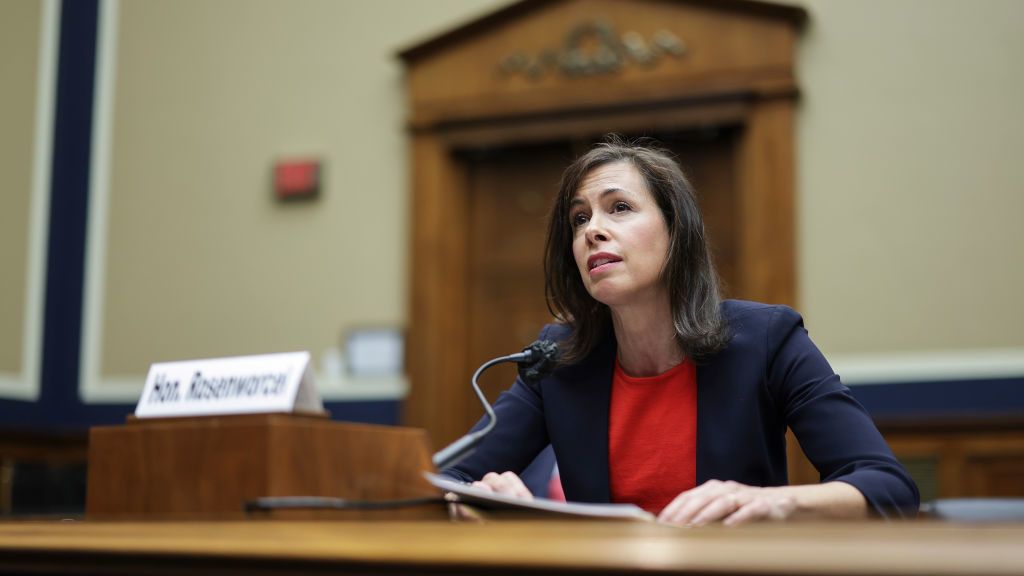California curbs big tech with child data privacy bill
The legislation will expand on the requirements tech companies already face in the state to curb collection of children's personal information


Governor of California Gavin Newsom signed a new bill into law on Thursday, that will work to bind social media firms to a series of data protection agreements pertaining to minors.
The bipartisan bill, titled AB2273, will bring into effect the California Age Appropriate Design Code Act (CAADCA). This legislates against the collection, selling or retaining of children’s personal information without the company attempting to do so having provided a persuasive reason that said activity is in the best interests of the children involved.
Social media firms will also be required to provide children on their platforms with accounts set to the highest available privacy level, in order to provide children with data protection by design. Additionally, terms of service, privacy policies and other such notices will be required to be provided in what the bill defines as “clear language suited to the age of children likely to access that online service, product, or feature.”
Tech companies will have until July 1 2024 to ensure that they are compliant with the bill’s data protection requirements, and will be required in advance to conduct a data protection impact assessment (DPIA) for any service that a child can access. Those that negligently violate the legislation could face a fine of up to $2,500 per affected child, or up to $7,500 per affected child in the case of intentional violation.
Unlike the EU and UK, which have legislation such as General Data Protection Regulation (GDPR) and the Data Protection Act (DPA) respectively, the USA lacks federal data protection laws. As a result, the privacy legislation and precedent that firms must follow varies state-by-state.
However, given the importance of California within the US as a tech hub, as well as the relative strictness of its privacy and consumer protection laws, it is often regarded as a data protection beacon that other states follow. In 2020, the California Consumer Privacy Act (CCPA) was brought into effect, giving Californian consumers the right to know what data is being collected about them, and to opt out of data collection and request deletion at any time.
The CCPA also sets out a broad definition of personal information, including data that can uniquely identify an individual, biometric information, geolocation, or any “inferences” drawn from data within the definition to create a profile on a consumer’s individual needs or behaviour. The final category impacts upon AdTech practice most directly.
Get the ITPro daily newsletter
Sign up today and you will receive a free copy of our Future Focus 2025 report - the leading guidance on AI, cybersecurity and other IT challenges as per 700+ senior executives
RELATED RESOURCE

Evaluating modern enterprise storage
Dell EMC PowerStore is modern enterprise storage designed to address the needs of our new era
The CAADCA will also force social media firms to explain the necessity and safety of systems such as their recommendation algorithms, stating that DPIAs undertaken by firms in line with the legislation need to question “whether algorithms used by the online product, service, or feature could harm children.” Some legislators in the UK have been similarly concerned, and earlier this year a group of watchdogs assessing algorithms were announced.
The UK government’s proposed Online Safety Bill includes several clauses that address the use of algorithms, both in regards to their use in spreading disinformation and the risks that they present to children’s safety. However, this bill is currently ‘on ice’, and has not been re-introduced to parliament since new PM Liz Truss announced plans to amend the bill to prioritise free speech.
“We’re taking aggressive action in California to protect the health and wellbeing of our kids,” said Newsom, in a statement to the press.
“As a father of four, I’m familiar with the real issues our children are experiencing online, and I’m thankful to Assembly members Wicks and Cunningham and the tech industry for pushing these protections and putting the wellbeing of our kids first.”

Rory Bathgate is Features and Multimedia Editor at ITPro, overseeing all in-depth content and case studies. He can also be found co-hosting the ITPro Podcast with Jane McCallion, swapping a keyboard for a microphone to discuss the latest learnings with thought leaders from across the tech sector.
In his free time, Rory enjoys photography, video editing, and good science fiction. After graduating from the University of Kent with a BA in English and American Literature, Rory undertook an MA in Eighteenth-Century Studies at King’s College London. He joined ITPro in 2022 as a graduate, following four years in student journalism. You can contact Rory at rory.bathgate@futurenet.com or on LinkedIn.
-
 Asus ZenScreen Fold OLED MQ17QH review
Asus ZenScreen Fold OLED MQ17QH reviewReviews A stunning foldable 17.3in OLED display – but it's too expensive to be anything more than a thrilling tech demo
By Sasha Muller
-
 How the UK MoJ achieved secure networks for prisons and offices with Palo Alto Networks
How the UK MoJ achieved secure networks for prisons and offices with Palo Alto NetworksCase study Adopting zero trust is a necessity when your own users are trying to launch cyber attacks
By Rory Bathgate
-
 Tech leaders worry AI innovation is outpacing governance
Tech leaders worry AI innovation is outpacing governanceNews Business execs have warned the current rate of AI innovation is outpacing governance practices.
By Emma Woollacott
-
 Top data security trends
Top data security trendsWhitepaper Must-have tools for your data security toolkit
By ITPro
-
 SEC data breach rules branded “worryingly vague” by industry body
SEC data breach rules branded “worryingly vague” by industry bodyNews The new rules announced last week leave many questions unanswered, according to security industry experts
By Ross Kelly
-
 The gratitude gap
The gratitude gapWhitepaper 2023 State of Recognition
By ITPro
-
 Meta sues ‘data scraping for hire’ service that collected info on 600k users
Meta sues ‘data scraping for hire’ service that collected info on 600k usersNews Meta says tackling data scraping will require a “collective effort” from platforms and policymakers
By Ross Kelly
-
 Building a data governance strategy in 2023
Building a data governance strategy in 2023In-depth Data governance will continue to expand as attitudes change and businesses look to optimise the value of their data
By Keri Allan
-
 FCC plans strict overhaul of 15-year-old US data breach regulations
FCC plans strict overhaul of 15-year-old US data breach regulationsNews Telcos could no longer be able to use negligence as a defence for data breaches as the FCC also seeks to hasten public notification of breaches
By Rory Bathgate
-
 UK follows EU in securing data deal with South Korea
UK follows EU in securing data deal with South KoreaNews The deal will foster cross-border collaboration between businesses by reducing administrative and financial frictions
By Zach Marzouk